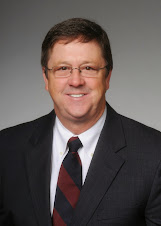State Capitol Week in Review
LITTLE ROCK – When the 2023 regular session convenes on January 9, there will be 13 new members in the Arkansas Senate.
The legislature is a citizen legislature, and the senators’ occupations reflect the Arkansas economy. The Senate has cattle ranchers, chicken growers and row crop farmers. It has bankers, accountants, attorneys, educators and people who own their own businesses. One senator is a pastor and chaplain for people in hospice care.
There are senators who work in the timber industry, health care, long-term care, employment services, graphic design, real estate development and construction.
Their experience is varied and extensive, including service on city councils, county quorum courts, school boards, development districts and state government.
Each senator represents about 86,000 people.
The political breakdown is 29 Republicans and six Democrats. Five senators are women and four senators are African-American.
The 13 new senators will be the largest freshmen class in the 35-member Senate since 2011, when 14 senators began their first regular session. One of those 14 newcomers had limited experience because he had been elected in a special election and served in the Senate during the 2010 fiscal session. The 2011 session was his first regular session.
Fiscal sessions are not nearly as hectic as regular sessions. In a typical fiscal session fewer than 300 budget bills are considered and work is completed within several weeks.
In a typical regular session, the legislature works for several months and considers about 2,000 bills affecting state government, law enforcement, education, health care, insurance, transportation and economic development.
During the regular session, senators will meet in committees to review in detail proposed bills. The nine standing committees are State Agencies and Governmental Affairs; Judiciary; Insurance and Commerce; Education; Revenue and Taxation; City, County and Local Affairs; Agriculture, Forestry and Economic Development; Transportation, Technology and Legislative Affairs and Public Health, Welfare and Labor.
The Joint Budget Committee has members from the Senate and House. It will review in detail all state agency spending requests and meets more often than any other committee during regular sessions.
Also during the 2023 regular session the Joint Committee on Public Retirement and Social Security Programs will review numerous bills affecting public pension systems.
The Senate experienced historic turnover in 2001, when 17 senators were newcomers, and in 2003, when there were 16 newcomers. Those years reflected the impact of the first version of a term limits amendment to the state Constitution, which was first approved by Arkansas voters in 1992.
The amendment took effect for about half of the senators in 2001, when they would have come up for re-election except they were prohibited due to term limits. The amendment took effect for the remaining senators in 2003, when it prohibited them from seeking re-election.
The 100 members of the House of Representative serve two-year terms and all 100 seats are contested every election year.
Senators serve four-year terms, and half of the 35 seats are contested in every election year. That means if 17 seats are contested during one election, then 18 seats are contested at the following election. Another difference between the Senate and the House is that gubernatorial appointments are confirmed by the Senate.

